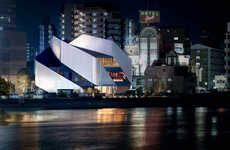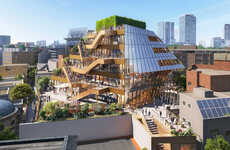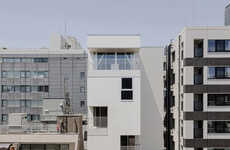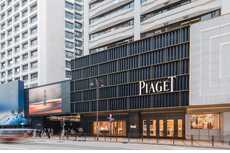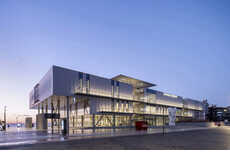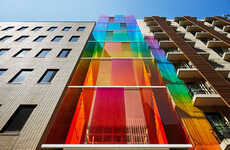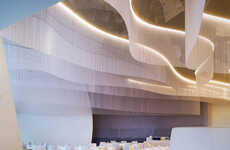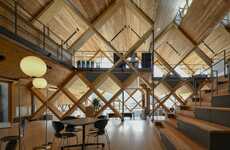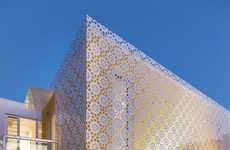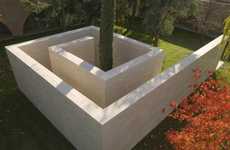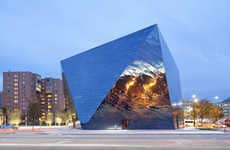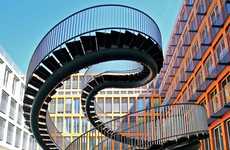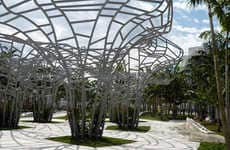
The Cut-Out Facade of the New Mikimoto Building in Tokyo
Marissa Liu — December 2, 2009 — Art & Design
References: toyo-ito.co.jp & design-milk
The new Mikimoto building in the Ginza area of Tokyo, Japan looks a lot like a piece of swiss cheese, only less uniform. The structure houses the head office for Mikimoto, a luxury jeweler that specializes in pearls. You’d think the Mikimoto building would be more reminiscent of their star product, but alas, no.
Made of steel and reinforced concrete the Mikimoto building does add character to the area’s skyline. Ginza is an upmarket retail and entertainment district in Tokyo.
Made of steel and reinforced concrete the Mikimoto building does add character to the area’s skyline. Ginza is an upmarket retail and entertainment district in Tokyo.
Trend Themes
1. Cut-out Facades - The trend of cut-out facades creates visually striking architectural designs.
2. Unconventional Building Shapes - The trend of using unconventional building shapes adds uniqueness and personality to urban landscapes.
3. Architectural Experimentation - There is a growing trend of architects experimenting with unconventional materials and designs to push the boundaries of traditional architecture.
Industry Implications
1. Luxury Jewelry - The luxury jewelry industry could explore incorporating unique architectural designs into their physical store locations to enhance brand identity and create memorable shopping experiences.
2. Construction and Architecture - The construction and architecture industry can leverage the trend of cut-out facades and unconventional building shapes to offer clients innovative and visually appealing designs.
3. Urban Development and Real Estate - The urban development and real estate industry can capitalize on the trend of architectural experimentation to attract tenants and buyers with distinctive and modern building designs.
2.2
Score
Popularity
Activity
Freshness

